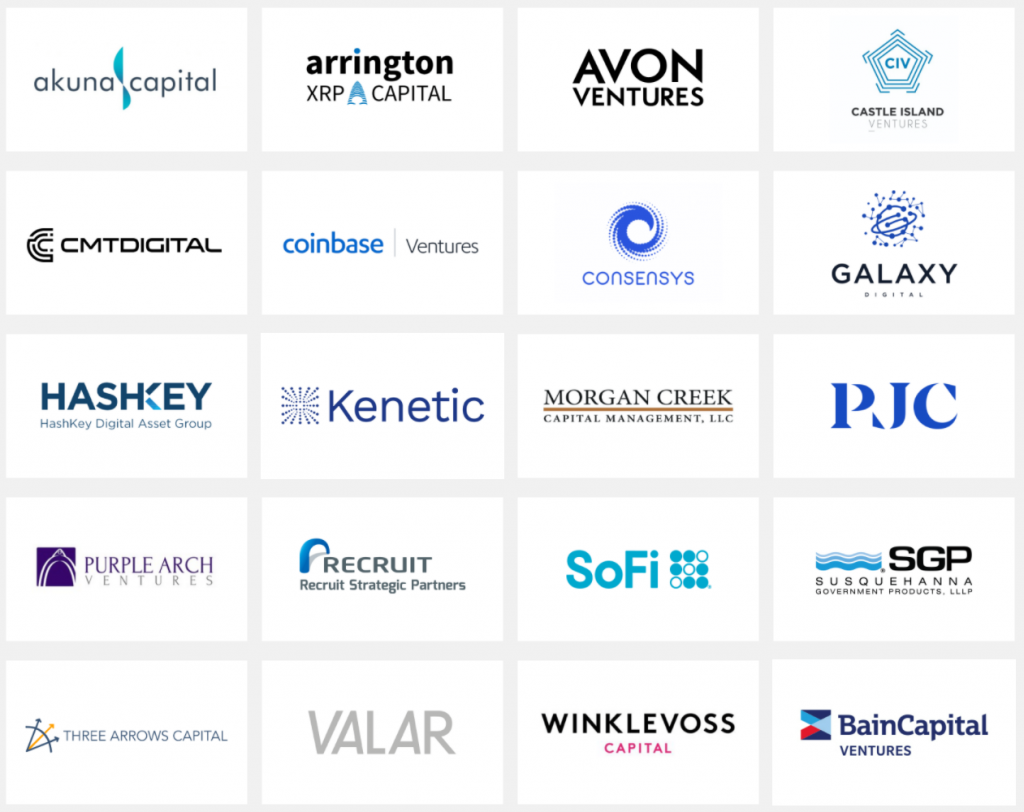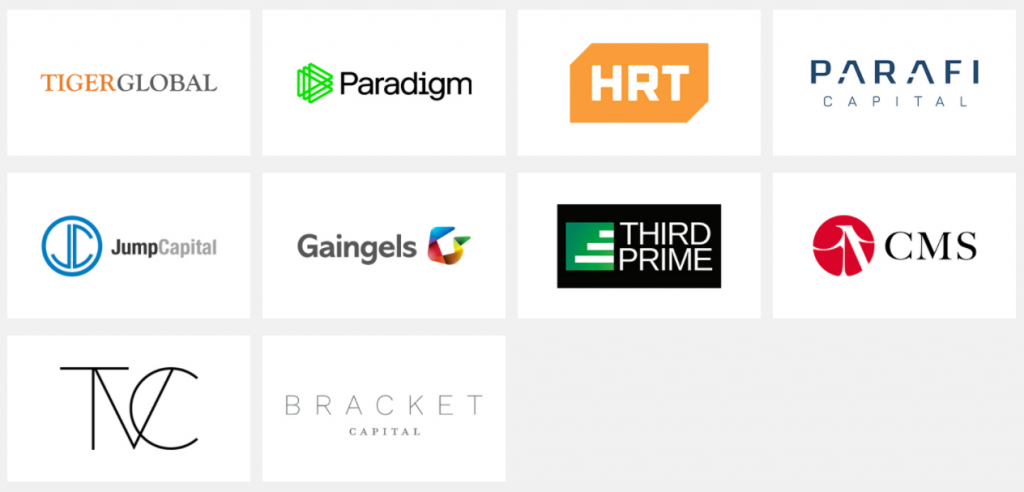BlockFi is a platform to buy, sell and earn on cryptocurrency assets. But how does BlockFi make money? And how does it help generate more crypto?
How does BlockFi make money?
BlockFi makes money from crypto mining, withdrawal fees, interest fees, trading spreads, sponsorship fees, and investments in other trusts. BlockFi has raised over $1 billion in funding after their most recent Series E venture capital round.
Now that we have business context, let’s take a deep dive into the business model of BlockFi today.
What Is BlockFi – Brief Company History
BlockFi is a New York City-based cryptocurrency wealth management and trading firm.
It began operations in 2017.
BlockFi is founded by Flori Marquez, Co-Founder and SVP of Operations and Zac Prince, CEO and Co-Founder who have interesting backgrounds in consumer lending, portfolio management, and running startups.
Side note: Recently, Flori was recognized as one of the top 5 female founders by Inc Magazine.
Zac had been investing in Bitcoin since 2014, and in Ethereum since 2016 just a year after it was launched.
He continued to make increasing investments in his crypto assets.
During the crypto market rally, Zac’s investment portfolio surged to great heights.
The story behind BlockFi started when Zac went out looking for a property loan based on this new valuation of his portfolio.
But, none of the banks he approached considered his crypto investments as assets.
”Despite the fact that they’re an investment of substantial value, I couldn’t use this asset as a financial tool and that really helped me realize how much work was still left to do in maturing crypto as an asset class”, Prince mentioned in a 2018 interview.
Flori on the other hand was a crypto enthusiast too. She met with Zac to discuss the idea that he had about launching a lending platform.
Both of them had a similar vision in terms of building a company for the crypto community.
That’s how BlockFi was born.
It has since enabled crypto enthusiasts to access the facilities offered by traditional banking systems, within the crypto world.
The company officially registered “BlockFi Bitcoin Trust” according to this SEC report and then went on to register the BlockFi Litecoin and BlockFi Ethereum trusts as well.
On October 8, 2021, Yahoo! released a news article mentioning that BlockFi had filed to launch a Bitcoin ETF.
Both of these additions show how the natural progression of BlockFi from a lending platform to a full-fledged financial institution is taking place.
How Does BlockFi Work – Services Overview
BlockFi acts as a bank within the blockchain ecosystem. It offers 4 main services – crypt-backed loans, BlockFi trading account, BlockFi interest account, and Credit Card.
Let’s talk about these services in detail.
1. Crypto-Backed Loans
BlockFi lets you use existing crypto holdings as collateral to borrow money. They offer a low 4.5% APR on the borrowed sum with an option to prepay as early as needed.
You can loan up to 50% of the investment value, starting at $10,000. The APY depends on the amount, duration, and crypto assets at the time of borrowing.
2. BlockFi Interest Account
If you have cryptocurrencies in a wallet, it makes sense to earn interest.
BlockFi created their interest accounts to do the same. Use the APY calculator on their interest account page to know how much your idle crypto can earn.
You may earn up to 8.25% when investing USDT depending on multiple economical factors.
It lends out the invested cryptocurrencies to businesses looking for loans. Businesses are charged higher interest on these loans.
3. BlockFi Trading Account
To become the single place to cater to the needs of crypto enthusiasts, BlockFi also offers a trading account.
All trading accounts work in a similar fashion. And BlockFi is no different. They enable transactions within the users and across different platforms seamlessly.
With more users onboard, BlockFi is now finding ways to profit from the trading through user data, business investments, or simply through hidden trading fees.
4. Visa Bitcoin Credit Card
BlockFi has enabled credit based on the invested crypto just like traditional banks (see how banks make money).
This is a recent addition to their portfolio of services. Users can request a BlockFi credit card and get rewarded with Bitcoins based on the average spending.
Currently, BlockFi Cred Card works in cooperation with Visa. It allows users who hold the card to make payments with the crypto account balances.
How Does BlockFi Make Money?
Now that you know the history of BlockFi and how it works, let’s understand their business model. How does BlockFi make money to sustain it’s growth and operations?
What are some of the major revenue sources for BlockFi?
1. Interest Fees
Since BlockFi started as a crypto lending platform, interest fees have been the highest revenue generators.
BlockFi acts as a bank.
Here’s how BlockFi makes money with interest fees:
- A user invests her cryptocurrencies in the BlockFi interest account for a fixed annual yield
- These crypto assets are collectively loaned out to businesses who pay a high interest
- The difference between the interest rates is where BlockFi takes their cut.
Suppose, you invested USDT 10,000 at 8.5%. You will receive USDT 850 at the end of your 365 days.
BlockFi then loans out the USDT 10,000 to a business at 10% interest for a year. When the amount is paid back by the business, BlockFi receives USDT 1,000 in interest.
It pays you USDT 850 for investing with BlockFi and keeps USDT 150.
Now, imagine the numbers when the number of users investing in BlockFi is in the hundreds of thousands.
2. Trading spreads
When BlockFi launched its trading platform, it started with zero commission trading.
However, nothing can be completely free for long. And BlockFi had to find a way to make money from the transactions.
They began profiting from the differences between the buy and sell prices during trading. Suppose you buy and sell crypto instantly, you may make a small loss due to the difference between what users are selling at and what people are willing to buy at.
This difference is where BlockFi makes some of its revenue from trading.
It matches the highest bidders to complete the purchase within milliseconds but offers you the buy price of the most recent bidder available. The difference is profit for BlockFi.
While the amounts are absolutely tiny, with a higher volume of transactions occurring on a regular basis, BlockFi generates a decent revenue from these operations.
Also, BlockFi revised its terms stating they would release anonymized trading data to other firms which adds to their revenue generation sources.
3. Bitcoin Mining
BlockFi partnered with Blockstream for Bitcoin mining. As a Blockstream Mining partner, BlockFi has deployed miners at their mining facility in Georgia, USA, with access to over 300MW of power capacity.
By engaging in Bitcoin mining, BlockFi plans to expand its service offerings to the mining community and diversify revenue streams by accumulating bitcoin on its balance sheet.
4. Bitcoin Investment Trusts
In February 2021, BlockFi went ahead with the launch of its Bitcoin Trust. This was quickly followed by the Ethereum Trust and Litecoin Trusts.
The company plans to become a full-fledged wealth management firm focused on cryptocurrencies. The formation of an investment trust is a step that takes it towards this goal.
Now, crypto investors can allow BlockFi to manage their investments directly through these trusts with the custody of bitcoin held by Fidelity Digital Assets Services through a secure custody solution.
And the sponsor fee is currently set at 1.75% for all investments.
5. Rehypothecation
Rehypothecation is a concept common in the brokerage world. It can also be called re-pledging or in layman’s terms, re-using.
Re-using funds.
When you sign up with a broker or fund manager, you give rights to use your idle funds as long as you can withdraw and use them when you need to.
Brokers then use these idle funds across all the user accounts to trade securities or invest in assets that generate interest.
Users do not get the direct benefit of rehypothecation. But brokers use this revenue to offset the loss they bear while letting users trade at 0 commissions.
6. Withdrawal fees
Finally, BlockFi also charges a small withdrawal fee. The fees vary between different crypto assets but here’s a list of the withdrawal fees that are charged by the company.
| Currency | Withdrawal Limit | Fees*** |
|---|---|---|
| BTC | 100 BTC per 7-day period | 0.00075 BTC |
| ETH | 5,000 ETH per 7-day period | 0.02 ETH |
| LINK | 65,000 LINK per 7-day period | 0.95 LINK |
| LTC | 10,000 LTC per 7-day period | 0.0025 LTC |
| Stablecoins | 1,000,000 per 7-day period | $10.00 USD |
| PAXG | 500 PAXG per 7 day period | 0.015 PAXG |
| UNI | 5,500 UNI per 7 day period | 1 UNI |
| BAT | 2,000,000 BAT per 7 day period | 35 BAT |
BlockFi Financials
Let’s now look at the financials for BlockFi and understand who invested in the company, how much was invested, and what the current valuations are.
BlockFi Investors
Here’s a snapshot of all the investors in BlockFi as of this writing. Scroll further for links to the websites of individual investors.


| Investor | About |
| Akuna Capital | Akuna Capital is an innovative trading firm with a strong focus on collaboration, cutting-edge technology, data driven solutions and automation. |
| Arrington XRP Capital | Arrington XRP Capital is a digital asset management firm in blockchain-based capital markets. |
| Devonshire Investors | Devonshire is a solution for owners who may be seeking personal liquidity, contemplating a succession plan, or looking for a motivated partner who can help grow their business and provide additional capital and advice. |
| Castle Island Ventures | Castle Island Ventures is an early stage venture capital firm exclusively focused on public blockchains |
| CMT Digital | CMT Digital, a division of the CMT Group, is focused on crypto asset trading, blockchain technology investments, and legal/policy engagement in the crypto asset/blockchain technology industry. |
| Coinbase Ventures | Coinbase Ventures invests in companies building the open financial system. |
| ConsenSys | Build next-generation apps, launch blockchain-based financial infrastructure, and access the decentralized web with ConsenSys Ethereum product suite. |
| Galaxy Digital | We are the bridge between the crypto and the institutional worlds. |
| HashKey Group | HashKey Group empowers institutional investors to capture high-potential investment opportunities in digital assets and blockchain technology. |
| Kenetic Capital | Kinetic Capital Partners provides the limited partners investing capital with a “no-leakage” and genuine “preferred return” structure. It targets private equity investments using Value for Growth and/or Break-up Value approaches. |
| Morgan Creek | Morgan Creek Capital Management, LLC is an SEC-registered investment adviser providing investment management services to institutional and qualifying clients such as endowments, pension plans, foundations, and family offices. |
| PJC Venture Capital | We know the challenges founders face because we’ve been there too. Thanks to our decades of thriving and surviving in recessions and booms, alike, we know the financial discipline and operational expertise it takes to build businesses that endure. |
| Purple Arch Ventures | Purple Arch gives Northwestern alumni easy access to VC investing. We build smart, diversified portfolios investing in Northwestern-connected startups. |
| SoFi | SoFi is a different kind of finance company whose goal is to help people get their money right. Our products are built around our members—so that they have the tools they need to take control of their financial futures. |
| Three Arrows Capital | Three Arrows Capital Ltd. is a hedge fund established in 2012 and focused on providing superior risk-adjusted returns, founded by Su Zhu and Kyle Davies. |
| Group 13 | We invest in high-margin, fast-growing technology companies that are pursuing huge market opportunities. |
| Winklevoss Capital | At Winklevoss Capital, we believe in determined entrepreneurs. Risk-taking is just in their blood. By providing guidance, relationships, and capital, we reinforce their pursuit of a frictionless world and a better human experience. Because those who dare to fail greatly, dare to achieve greatly. |
| Bain Capital | Bain Capital, LP is one of the world’s leading multi-asset alternative investment firms. With offices on four continents, our global team aligns our interests with those of our investors and partners for lasting impact. |
| Tiger Global Management, LLC | Tiger Global is an investment firm focused on public and private companies in the global Internet, software, consumer, and financial technology industries. |
| Paradigm | Every once in a while, a new technology comes along that changes everything. The internet defined the past few decades of innovation. |
| Hudson River Trading | Hudson River Trading brings a scientific approach to trading financial products. |
| ParaFi Capital | ParaFi Capital is an alternative investment firm focused on blockchain and decentralized finance markets. |
| Jump Capital | Jump Capital is a thesis-led venture investor specializing in scalable software opportunities in fintech, crypto, IT and data infrastructure, future of commerce, digital media and vertical SaaS solutions. In addition to capital, Jump provides advocacy and support for entrepreneurs, complemented with institutional level resource |
| Gaingels | Gaingels is the first investment vehicle for LGBT+ founders and executives |
| Third Prime | Third Prime is a venture firm focused primarily on the FinTech, PropTech, and Crypto sectors. We invest in world-class entrepreneurs at the earliest stages. |
| CMS Holdings | CMS is a principal investment company that focuses on investing in the crypto-asset ecosystem. The firm plans to invest in both liquid and illiquid crypto tokens, as well as equity interests in select businesses. |
| The Venture Collective | The Venture Collective is a transformational, early-stage venture business backed by world class entrepreneurs and business leaders |
| Bracket Capital | Bracket Capital is more than just a venture capital fund. We are a global, multi-asset investment manager. |
Funding and Valuation
BlockFi has raised over $1 billion from across Series A to E in venture capital funding. BlockFi received the largest investment to date at $500 million in its latest Series E round.
After this round, BlockFi is now valued at $5 billion, up by over $2 billion since its Series D round.
Key People
Here’s a list of the key people working at BlockFi.
Zac Prince – Co-Founder and CEO
Lori Marquez – Co-Founder and VP of Growth
Rene van Kesteren – Chief Risk Officer
Mahesh Paolini-Subramanya – CTO
Final Words – Is BlockFi Safe?
BlockFi is a perfectly safe blockchain startup to invest with. And the only risk involved is based on the type of investments you choose. For a basic interest account, you do not need to worry about the loss of your coins as the company has now been registered with the SEC for your safety.
I hope you enjoyed reading about BlockFi. If you are interested in learning more about different brokers, you can check out the Binance business model.


![How Does MEGA Make Money? [UPDATED] 4 Read more about the article How Does MEGA Make Money? [UPDATED]](https://moneymodels.org/wp-content/uploads/2020/07/How-does-MEGA-make-money-300x150.jpg)
![How Does Zelle Make Money? [Business Model] 5 Read more about the article How Does Zelle Make Money? [Business Model]](https://moneymodels.org/wp-content/uploads/2021/10/Business-model-How-does-zelle-make-money-300x150.png)
![How does Telegram make money? [Business Model] 6 Read more about the article How does Telegram make money? [Business Model]](https://moneymodels.org/wp-content/uploads/2020/12/How-does-Telegram-make-money-300x150.jpg)